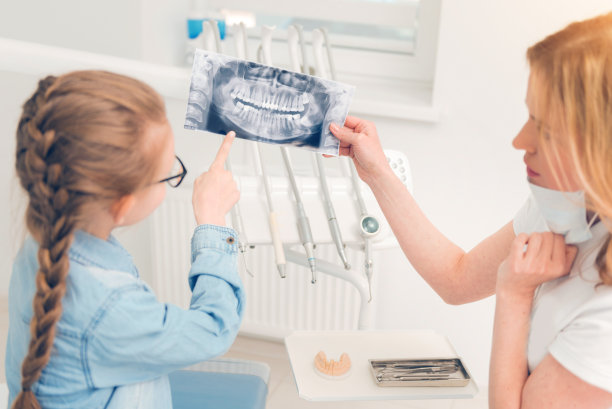Revolutionizing Smiles and Oral Health The Transformative Impact of Dental Implants on Modern Dentistry and Patient Lives
Summary: Dental implants have revolutionized modern dentistry, transforming smiles and enhancing oral health for countless patients. This article delves into the profound impact of dental implants from various perspectives, highlighting their design for patient comfort, their role in restoring functionality, the psychological benefits they provide, and their effects on the overall healthcare landscape. As we explore these different aspects, it becomes clear that dental implants not only restore physical appearances but also improve quality of life, making them an invaluable innovation in dental care.
1. Patient Comfort and Implant Design Innovations

Dental implants have transformed significantly over the years, with advancements in technology leading to designs that prioritize patient comfort. Modern implants are crafted from biocompatible materials such as titanium, which reduces the risk of rejection and enhances integration with jawbone. This innovative approach allows for minimally invasive procedures, which is a crucial factor in reducing discomfort during and after surgery.
Furthermore, the introduction of computer-aided design and 3D printing technology has allowed for the creation of custom implants tailored to the individual needs of patients. This personalization not only improves the fit and aesthetic outcomes but also contributes to shorter recovery times, thereby enhancing the overall patient experience.
Moreover, the development of sedation techniques ensures that patients experiencing anxiety regarding dental procedures can undergo treatment with minimal stress. By addressing discomfort at multiple levels, dental implants have become an appealing option for many seeking restorative dental work.
2. Restoring Functionality and Natural Aesthetics
One of the primary functions of dental implants is to restore the ability to chew and speak effectively, which is often compromised by missing teeth. Traditional dentures can sometimes slip or cause discomfort, making it difficult to enjoy one’s favorite foods. In contrast, dental implants function like natural teeth, providing stability and making everyday activities more enjoyable.
The aesthetics provided by implants can significantly boost a patients confidence. Unlike traditional tooth replacements, implants are designed to mimic the appearance of natural teeth, creating a seamless smile that can be tailored to match existing dental features. This restoration of function and beauty is crucial in helping patients regain their confidence in social situations.
Furthermore, dental implants support jaw health by stimulating bone growth, which is often lost when teeth are missing. This not only maintains the structure of the jaw but also helps preserve facial contours, preventing the sunken appearance that can occur with tooth loss. The comprehensive advantages of implants in restoring both function and appearance make them a superior choice for dental rehabilitation.
3. Psychological Benefits and Quality of Life Improvement
The psychological impact of restoring ones smile cannot be overstated. Many patients who undergo dental implant procedures report a marked increase in self-esteem and overall satisfaction with their appearance. This newfound confidence can lead to better social interactions and an improved quality of life, as individuals no longer feel self-conscious about their dental issues.
Additionally, the reliability and comfort of implants allow patients to engage more freely in social and professional settings. The fear of unexpected denture slips is eliminated, granting users the freedom to speak, laugh, and eat without concern. Such transformational effects can lead to sustained positive impacts on personal and professional relationships.
Moreover, the psychological benefits extend to improvements in mental health, as feeling confident and attractive can alleviate feelings of depression or anxiety related to dental issues. Dental implants empower patients to experience life more fully, illustrating the profound influence dental health has on overall well-being.
4. Impact on Overall Healthcare and Preventative Care
Beyond aesthetic and psychological advantages, dental implants have transformative effects on overall healthcare. By restoring oral health, they can mitigate a variety of health issues linked to tooth loss, such as infections and difficulty in nutrition due to inadequate chewing. This proactive approach can lead to a reduction in healthcare costs over time.
Furthermore, the use of dental implants encourages earlier intervention in dental health issues. As patients prioritize maintaining their implants, regular dental visits become more common, leading to a focus on preventative care. This shift can ultimately contribute to better long-term oral health and, by extension, overall health outcomes.
Moreover, by significantly cutting down on the need for more complex dental procedures down the line, implants can be seen as an investment in one’s long-term health. The ongoing research and development in the field of dental implants continue to suggest even broader benefits for healthcare systems, distributing care more efficiently while enhancing patient satisfaction.
Summary:
The exploration of dental implants reveals their multifaceted benefits that revolutionize smiles and oral health. From patient comfort due to design innovations to the restoration of functionality and aesthetic appeal, these advancements present significant psychological and overall health improvements. Their impact extends beyond individual patients, promoting a culture of preventative care and better health outcomes.
This article is compiled by Vickong Dental and the content is for reference only.


